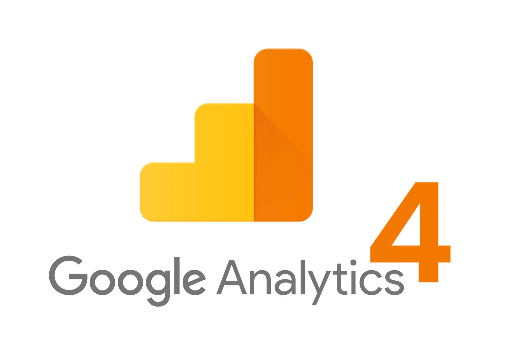
- August 15, 2023
- admin
- Business, Data Visualization, Google Analytics, Google Analytics 4 - GA4
As the digital landscape evolves, harnessing the power of data-driven decision-making has become essential for businesses seeking to thrive in a competitive market. Google Analytics 4 (GA4) has emerged as a game-changing tool, offering advanced features to capture user behavior and gather insights. Among these features are GA4 Recommended Events, a curated list of events designed to illuminate user interactions. In this comprehensive blog, we delve into the world of GA4 Recommended Events, exploring their significance, benefits, and how they can elevate your analytics strategy.
Understanding GA4 Recommended Events: A Strategic Advantage
GA4 Recommended Events is a curated collection of events that span different industries and user behaviors. Google’s data-driven approach identifies these events to ensure that businesses extract meaningful insights from their data. By leveraging these recommended events, you can tap into a wealth of pre-configured tracking options that align with your business goals, saving you time and effort in event setup.
The Benefits of GA4 Recommended Events
*1. Data-Driven Insights: Google’s vast data pool is leveraged to curate events that provide meaningful insights into user interactions, helping you understand user behavior better.
*2. Time Savings: Recommended Events eliminate the need for manual event creation, allowing you to focus on analysis rather than configuration.
*3. Customizable: While recommended, these events can be tailored to your specific needs, ensuring they align precisely with your unique business objectives.
*4. Comprehensive Understanding: Recommended Events cover a range of actions, from clicks and conversions to video engagement, providing a holistic view of user engagement.
Leveraging GA4 Recommended Events for Your Strategy
- Accessing Recommended Events: Within your GA4 property, navigate to the “Events” section and explore the “Recommended” tab to find the curated list of events.
- Selecting Relevant Events: Choose events that align with your business objectives and KPIs. These could include events related to purchases, video views, form submissions, and more.
- Customizing Events: While the recommended events provide a solid foundation, customize them to capture data that holds specific importance for your business.
- Implementing and Analyzing: Use Google Tag Manager or the GA4 tracking code to implement the selected events on your website or app. Once data starts flowing in, analyze the insights to refine your strategies.
Google Analytics 4 (GA4) Recommended Events are a curated set of pre-configured events that cover a range of user interactions across different industries and business objectives. These events are designed by Google to provide businesses with a streamlined way to capture valuable data insights without the need for manual event setup. The goal is to help businesses quickly and effectively track key user interactions that are relevant to their specific goals and objectives.
The specific list of GA4 Recommended Events can vary based on the type of property (website or app) and the industry or business vertical. However, some common types of GA4 Recommended Events might include:
- Enhanced Ecommerce Events: These events are designed for online retailers and cover actions such as product views, add-to-cart events, and purchase completions. They provide valuable insights into user behavior during the shopping journey.
- Engagement Events: These events focus on user interactions that indicate engagement with content, such as clicks on specific links, interactions with embedded media, and scroll tracking.
- Conversion Events: Conversion events track actions that signify a user completing a desired action, such as form submissions, sign-ups, or lead generation.
- Video Events: For websites or apps that host videos, these events track user interactions with video content, including play, pause, completion, and progress tracking.
- Screen Views: In mobile apps, screen view events capture when users view specific screens or pages within the app.
- Social Interactions: These events track user engagement with social media sharing buttons or other social interactions on your website or app.
- User Timing: User timing events measure the time it takes for specific actions to occur, such as page load times or interactions with specific elements.
- File Downloads: If your website offers downloadable content, these events track when users initiate downloads.
It’s important to note that while GA4 Recommended Events provide a valuable starting point, businesses can also customize and expand upon these events to track interactions that are unique to their specific industry and goals. By leveraging GA4 Recommended Events and tailoring them to your business needs, you can gain actionable insights and make informed decisions to optimize user experience and achieve your objectives.
Elevating Your Analytics Strategy with GA4 Recommended Events
GA4 Recommended Events stand as a testament to the power of data-driven insights. By incorporating these events into your analytics strategy, you unlock the potential to glean actionable insights from user interactions. Whether you’re seeking to enhance user engagement, refine marketing strategies, or optimize conversion paths, GA4 Recommended Events can guide you toward success. Embrace the curated events, harness the power of data, and navigate your business toward data-driven excellence with Google Analytics 4.
Categories
- Artificial Intelligence (19)
- Bigquery (7)
- Business (38)
- Chat GPT (6)
- Code (5)
- Data Science (23)
- Data Visualization (28)
- Google Ads (4)
- Google Analytics (19)
- Google Analytics 4 – GA4 (22)
- Google Bard (5)
- Google Cloud (6)
- Google Looker Studio (4)
- Google merchant center (2)
- Google tag manager (10)
- Healthcare (2)
- Hindi (6)
- Javascript (3)
- Migration (1)
- Natural Language Processing (5)
- NLP (3)
- Prestashop (3)
- Reports (10)
- SEO (1)
- Server-Side Tracking (10)
- Social Media (15)
- Technology (35)
- web design (2)
- web development (5)
- आर्टिफिशियल इंटेलिजेंस (5)
- एआई (5)
- कृत्रिम बुद्धिमत्ता (6)
- गूगल बार्ड (3)
- डेटा विज्ञान (1)
- डेटा साइंस (1)




